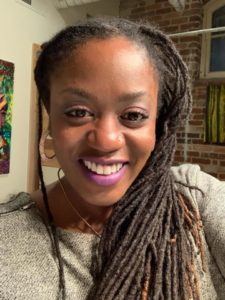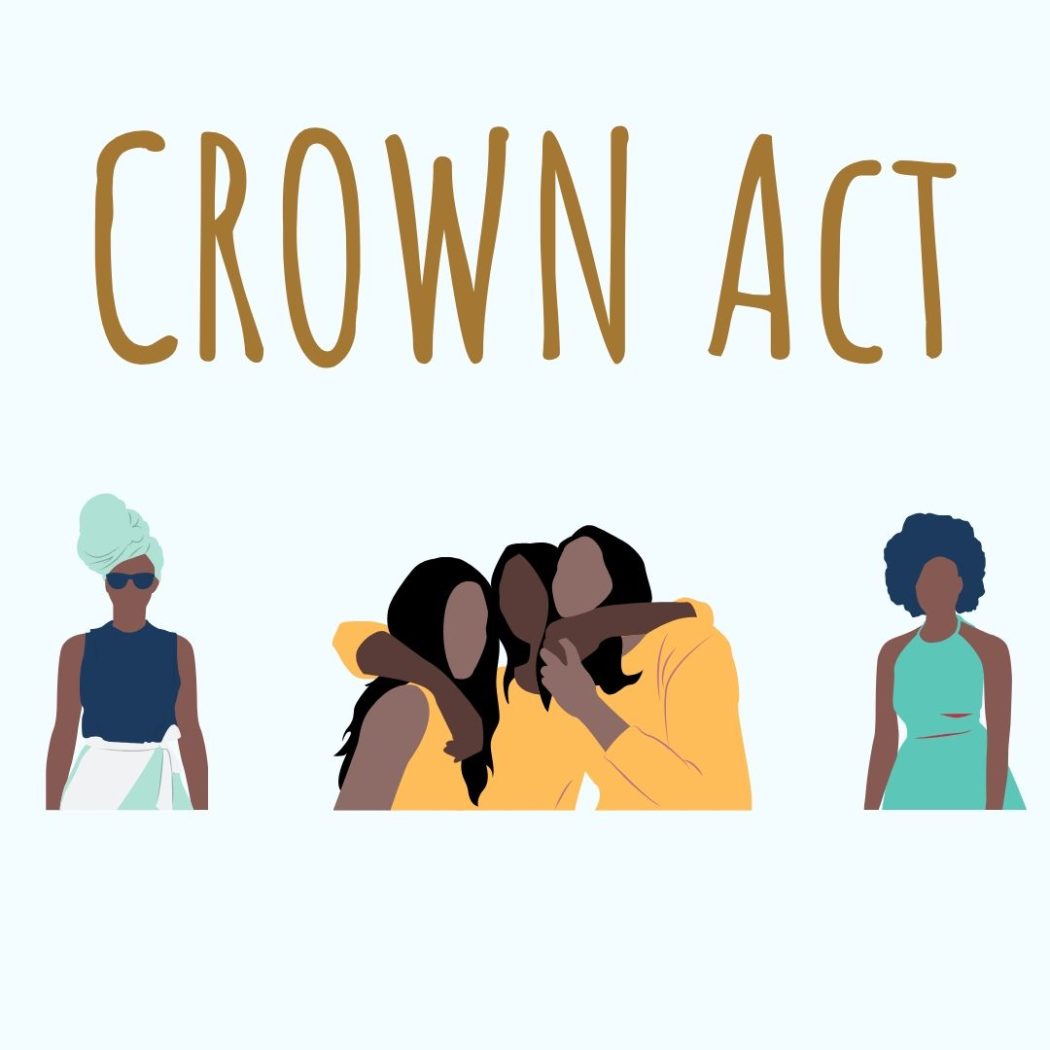 North Carolina Democratic Rep. G. K. Butterfield is among the U.S. House lawmakers pushing the CROWN Act, a bill that would ban discrimination based on hair textures and styles. The bill, which names styles commonly associated with black people, is of particular concern to black women, whose hair is more likely than white women’s hair to be perceived as “unprofessional,” according to a 2019 study of 2,000 black and white women.
North Carolina Democratic Rep. G. K. Butterfield is among the U.S. House lawmakers pushing the CROWN Act, a bill that would ban discrimination based on hair textures and styles. The bill, which names styles commonly associated with black people, is of particular concern to black women, whose hair is more likely than white women’s hair to be perceived as “unprofessional,” according to a 2019 study of 2,000 black and white women.
My natural hair story begins when I was just out of high school. I had just started growing my locs and I was eager to begin working at an internship I had beat out 3000 other people from getting. I interviewed with shoulder-length locs, but when I arrived at the internship there was a delay in starting my orientation because the employer wanted to have a discussion about my hair. The employer believed my hair was styled into braids and could easily be undone. In fact, my hair was not in braids. I had dreadlocks, better known as locs, and I could not change my hair easily without cutting it.
If I had known then, what I know now, I would have told my younger-self: “you are not alone. There are other black men and women all across the nation experiencing the same discrimination you’re experiencing right now – hair discrimination. It’s not you. It’s them. You should not have to be punished for rocking the natural hair that grows from your God-given head. Be proud of who you are and how you show up. How your hair looks is beautiful and it is professional. Do not let anyone tell you otherwise. It gets better; one day, the CROWN Act will be enacted, which will empower you in moments like these. Hang tight.”
At that moment, I was convinced that my hair was something to be ashamed of. Although the situation worked out well for me in the end, I carried much psychological pain from that moment, for years. As a licensed psychologist, Dr. Nina Ellis-Hervey put it: “the key is for society, particularly African-American women, to take pride in their hair and accept that the Western standard of beauty is not the only standard. Natural hair, when cared for properly, is beautiful and not belittling or demeaning.” Bills such as the CROWN Act are simply about “increasing the number of good things we do for our hair and decreasing the number of bad things that you have to do to our hair” to be considered successful at work.
Like many African-Americans, I learned that protective hairstyles such as braids, locs, bantu knots, twists, and afros, are not professional enough for a work setting. For decades, employers have been allowed to refuse to hire or train a person based not on their bona fide qualifications, but rather hair or hairstyle. This is a form of discrimination because there is a strong historical connection between race, hair textures, and hairstyles. Black hair textures and hairstyles are germane to our culture and racial identity. Black hairstyles are central and fundamental to who we are as a people and often times, it is a symbol for the very core of our essence as black people.
The biases of natural hairstyles associated with Black culture are a form of racism and discrimination. The natural hairstyles that are associated with blackness and black culture are often considered necessary to meet the unique needs of black individuals; and can have practical unique advantages, such as, keeping the hair neat and out of the way during physical activity. The styles should not be considered any less professional or viewed as a lesser standard.
While it may seem that hair discrimination is not an important issue and of little consequence, the impact is significant on those who spend hundreds of dollars per year, countless of hours, and endless amounts of energy working to conform into societal standards of professionalism by straightening their hair.
Black women spend a much larger amount of time and money on their hair than their counterparts, because it could mean the difference between a job, promotion or a career-limiting-move. The social pressures to straighten tightly coiled hair often results in high levels of anxiety and other health disparities. The methods used to straighten Black hair, such as, high heat and relaxers, are closely linked to skin and eye irritation, respiratory disorders, obesity, cancer, and reproductive issues. It could also lead to traction alopecia or scarring at the hairline; weaves and tight braids could lead to central centrifugal cicatricial alopecia (CCCA) – hair loss in a circular pattern or progressive hair loss. The decisions regarding whether to wear natural hair can lead to heavy emotional and cognitive burdens, as you try your best to figure out how to manage how your colleagues at work perceive you and your hairstyle.
States, such as California, have enacted bills like the Creating a Respectful and Open Workplace for Natural hair, or CROWN Act, protecting employees from discrimination against wearing any hairstyle that is historically associated with their race, such as locs and afros are associated with Blackness. Bills like the CROWN Act protect against the stereotypical assumptions about locs and other natural hairstyles. The stigma for those who wear locs, for example, is that locs are dirty, unclean, smell, but factually, this is not necessarily true. Locs can promote hair growth and be evidence of strong, healthy natural hair in a protective hairstyle. Only a few states have adopted the CROWN Act thus far; and as of yet, there are no federal protections.
As a Black female attorney, I often wonder whether my locs impact the outcome of my clients’ cases. I want to show up in life authentically, not suppressing my identity traits to conform into institutions and organizations, but I never want my clients to be negatively impacted by these decisions. And I do not want any other Black woman to experience that type of societal pressure and apprehension regarding her hairstyle either – everyday, pondering whether your hairstyle is a career limiting move. I am hopeful that the CROWN Act will become law in all 50 states and that these types of considerations become easier and easier to ponder.
CROWN campaign is an interdisciplinary team and growing village of grassroots advocates across the nation in academia, business, policy, research, health, law, the arts, and community who have lived experiences of hair discrimination, know of those impacted by hair discrimination, and have been engaging voices from around the country on experiences with hair discrimination.
CROWN campaign has tools and resources from the growing village at www.crowncampaign.com.
Crystal Richardson is a North Carolina based attorney, activist and self-care advocate. She is also a policy advocate for the Crown Campaign.

There are no comments
Add yours